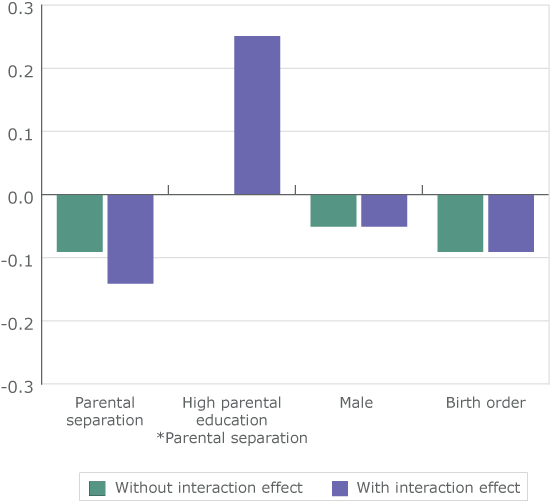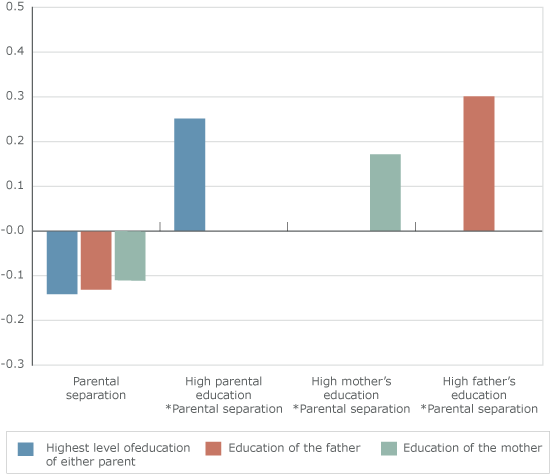It is widely recognised that children who experience parental separation during their childhood tend to achieve lower educational outcomes than those who come from intact families. However, the possible differentiation in the way in which such separation effects influence children from different socio-economic backgrounds is much less understood. In his work on Germany, Michael Grätz from the European University Institute looks at children’s social origin to disentangle such heterogeneity and shed further light on how the negative impact of parental separation on their educational outcomes varies.
Grätz found parental separation to have considerable negative effects on children’s educational outcomes, particularly on the probability of attending the upper track in secondary school (so-called “Gymnasium”). However, the author highlights that the negative consequences of parental separation disappear for children with highly educated parents. Thus, the negative outcomes are only limited to children of separated families with low-educated parents.
Negative effects only for children from low-educated families
The results show that children who have experienced parental separation have a lower probability of attending the upper track of the secondary school than children who have not gone through this situation (Figure 1). Nonetheless, the negative effect of parental separation becomes stronger for children from low-educated families when Grätz includes the interaction between parental separation and parental education (Figure 1) on track attendance. In fact, the probability of attending the highest track of high school is reduced by 14 percentage points for children of parents who are separated and have a low level of education. This disadvantage is the strongest observed.
Instead, having highly educated parents seems to protect children from the educational consequences of parental separation: these children do not have a lower probability of attending the upper track if their parents separated before they made the transition to the secondary school track compared to their siblings who made this transition prior to parental separation.
Grätz also demonstrates that both the levels of education of the mother and the father play a role in the compensation for the negative consequences of parental separation, but it is the education of the father that has the strongest protective effect (Figure 2). The author explains this result by arguing that a highly educated father might be more involved in the education of his child and invest more resources in helping him or her to improve after the marital break-up.

Figure 1. Results of family-fixed effects models (linear probabilities) predicting the impact of parental separation on attendance of the upper track (Gymnasium).

Figure 2. Results of family-fixed effects models (linear probabilities) predicting the impact of parental separation on attendance of the upper track (Gymnasium) by father’s and mother’s education.

*This PopDigest has received funding from the European Union's Seventh Framework Programme (FP7/2007-2013) under grant agreement n° 320116 for the research project FamiliesAndSocieties.
FamiliesAndSocieties (www.familiesandsocieties.eu) has the aim to investigate the diversity of family forms, relationships and life courses in Europe, to assess the compatibility of existing policies with these changes, and to contribute to evidence-based policy-making. The consortium brings together 25 leading universities and research institutes in 15 European countries and three transnational civil society organizations.